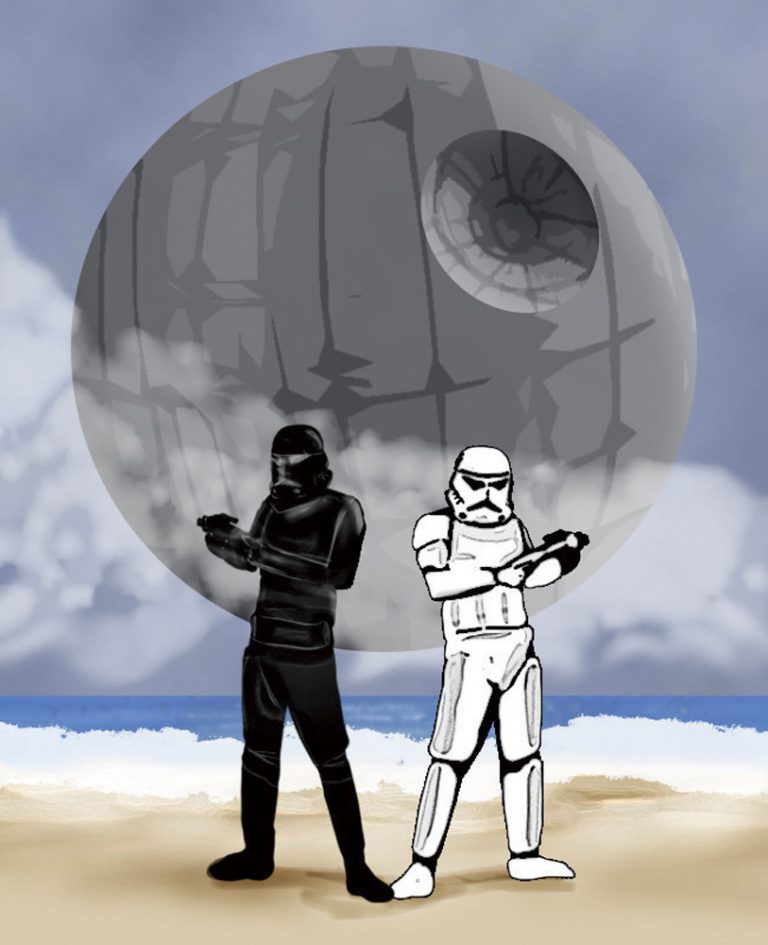
Amy Chase
Staff Writer
As a latecomer to the series, I originally began my Star Wars journey by watching what might be considered the most odious films in the entire existence of the franchise — the prequel trilogy. I did not hate them, but after watching all six Star Wars films that were released at the time, I understood the disappointments they represented concerning the acting, special effects, and lack of significant character development. Nothing could stand up to the originals, it seemed.
For the past two years now we’ve had new installments of Star Wars films in the form of “Episode VII: The Force Awakens,” which ushers in the start of a brand new sequel trilogy, as well as the first anthology film, “Rogue One: A Star Wars Story,” and I’m beginning to hear echoes of what disappointments Episodes I-III brought to the franchise now projected onto “Rogue One.” This newest installment is unique for a Star Wars film — it’s the first in a series of anthology films that provide more exposition on famous galactic instances, like the original rebels stealing the plans to the first Death Star, and how the dashing smuggler Han Solo won the Falcon.
These stories are not meant to have sequels, but instead focus their whole story into one film that expands the lore surrounding the main trilogies. In this way, it’s extremely difficult to compare the work of “Rogue One” to any of the trilogy films, including the newest “Ep. VII: The Force Awakens.”
Being a Star Wars film proves both a blessing and curse for “Rogue One” — it assumes you know the circumstances surrounding the film and endeavors to make you fall in love with the Rebel cause all over again. It has to assume, because with a two hour runtime, it has no minutes to waste on unnecessary exposition of the lore.
Where the new sequel trilogy is free to move forward in franchise, “Rogue One” nestles itself between two past trilogies, fitting itself around well-known plot moments that made the original series what it was — the fatal flaw in the Death Star being the most obvious. For the newest Star Wars film to explain just why the weapon had such a glaring malfunction, it has to suspend much more disbelief than the original film alone. It carries the weight of the prequels and all three originals on its back, and must accomplish its plot in one installment.
“Rogue One” eschews major character development in favor of plot-driving action as well as a strong ensemble, making the Rebellion more of the star than any one character. This proved a disappointment to some, based on unaired scenes that composed many trailers for the film. There are a few important cameos to prove the connection to the rest of the franchise, but as it rolls along you begin to understand why we’ve never heard of Jyn Erso or Cassian Andor outside of this film. Again, the story is meant to be self-contained. It has no need for a sequel, because that ‘sequel’ is the entirety of “A New Hope.”
“Rogue One” couldn’t align itself perfectly with every detail from the originals, but it is less tonally confused and has less to focus on than the prequel trilogy. There is no romance plot or minimal politics, and really felt like the first Star Wars film to bring the war to the forefront. The action cinematography, particularly in the third act of the film, really nails the thrill of Star Wars, with rebel pilots fighting in space while ground troops fend off Stormtroopers in an epic beachfront sequence. By the end, you do find yourself invested in the Rebellion all over, though you presumably already know they had to win for the original films to still stand.
Despite knowing, and despite the lack of certain characters’ development, I felt a renewed sense of hope that the film strove to instill by the very end. I had mixed feelings leaving the theater, mostly due to the emotional conclusion and the sense that those characters I had just come to love were not going to be in any future films.
Every subsequent Star Wars anthology film, like the upcoming Han Solo story, will face a difficult balance of adhering to the original trilogy, presenting a new story, and being innovative in a single installment. For a franchise built on trilogies and a rebellion built on hope, I think “Rogue One” represents an immense effort to truly expand the Star Wars world in a more condensed format. It truly is the “Rogue One” of the franchise, but I think it represents the beginning of a new hope for the galaxy if Lucasfilm can perfect the anthology formula.










